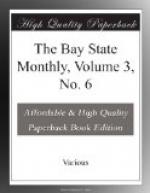There are two methods of life insurance worthy of the name, and two only. The one is by payments accurately adjusted to the cost of insurance at each actual age, and which inevitably, unavoidably and inexorably, must increase with the age of the person insured, and the other is by level, or uniform payments extending over the whole duration of life or for a stated number of years. The first is the natural system and has been adopted in part, and imperfectly, by assessment companies; the second is the artificial system, and is the one which has been offered exclusively until lately, by all the regular life insurance companies. Properly carried out, the one is as sound in theory and as safe in practice as the other. In fact, the artificial premiums are the exact mathematical or commuted equivalents of the natural premiums.
Until within the last decade, the level premium system was practically the only one in use. Since then there have come into existence hundreds of co-operative or assessment companies. These institutions have had a wonderful growth. It is claimed that the number of members and the amounts insured, double those, respectively, in the old or regular companies.
Assessment companies do not, strictly speaking, grant insurance. They are rather agencies, or trust companies, and their functions or covenants are to make assessments upon survivors when deaths occur, and to pay over the proceeds of such assessments to the beneficiaries of the deceased members. There is no definite promise to pay in full, and no obligation to pay more than the assessments yield. There is no capital, no risk, no insurance! It is a voluntary association of individuals. There is usually but little if any penalty for discontinuance of membership, and the permanence of such institutions depends mainly upon the volition of their members. They spring into existence suddenly by the voluntary association of a few individuals without capital or personal risk, and as suddenly they may go out of existence by the voluntary act or withdrawal of their members. A breath may create, a breath destroy.
It must be evident then to the merest tyro, that the permanence and success of assessment companies depend upon the most rigid observance of those principles which science and sound business experience have demonstrated to be fundamental. Among these principles may be mentioned the following.
1. Rates of assessments or payments adjusted to the cost of insurance at the actual age of each person. These rates must inevitably and inexorably increase with the age of the individual.
2. The creation of a guaranty, or emergency fund, available not only to meet extra mortality, but as a cement to secure cohesion among the members, and prevent the exodus of the sound lives.
3. An assessment in advance at issue of certificate, otherwise some persons will be insured for nothing and the cost will fall on the persistent members.




